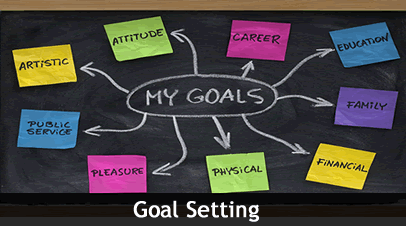Studies show that people who set goals, achieve more in life than those who do not. Too often though, goals are made in a vacuum with little thought of the big picture; our life and where it is going. Many of us are passive spectators, watching life unfold a day at a time. We may plan our careers, the building of a new home, or even a vacation, but it never occurs to us to plan our life. As a result, we could end up discouraged and disillusioned, wondering where things went wrong. Goal setting in the context of a wider life-plan requires us to become an active participant in our life, intentionally shaping our own future. It entails bouts of short term focus to achieve a long term vision.
Have we thought systematically about what outcomes we want to see in the major categories of our life? As Steven Covey put it, asking the question, “What will they say when I am dead?” is a powerful tool that forces us to fast forward to the end of our lives and look back. It forces us to think about the things that matter most. It helps to select the most important audiences, (God, family, friends, colleagues), and decide how we would want them to remember us.
Life can be thought of as a series of accounts. Selecting and prioritising the areas of our lives that are most important to us sets the stage for deciding exactly what we want to achieve and focusing our energy on achieving it. This entails developing an action plan under each account.
Each account should have a purpose statement which describes the function of the account and an envisioned future which describes what the account will look like if it has a positive net worth. Describing a current reality, as embarrassing as it may be, states exactly where we are and gives a clearer picture of the journey to the envisioned future. The specific commitments are the goals or resolutions for each life account that will lead us to the envisioned future which, when combined, is our life plan.
Goals must be planed for and SMART (Specific, Measurable, Achievable, Realistic and Time-bound). Setting time lines helps us monitor our progress and our chances of being successful are increased if we remain positive in thinking and aware of our emotions.
As stated before, goals made without thought of the bigger picture, are seldom sustained. A process of Self Discovery & Self Acceptance leads to Self Goals, Self Determination and Self Acutalisation. Self-actualized people are happier, more fulfilled, more ambitious, tend to have better relationships and live life with more “peak experiences”: love, joy, bliss, spiritual connection, creativity. Every human being has this innate drive and capacity within them to attain greatness, to become more of themselves and realize their unique potential and purpose.
If you are interested in receiving more information about goal setting, remember that your EAP is here to help. Contact us at eap@familiesinaction.net

